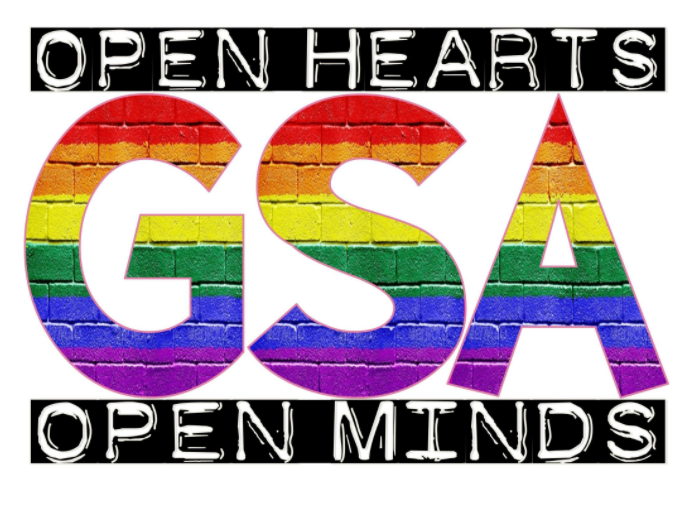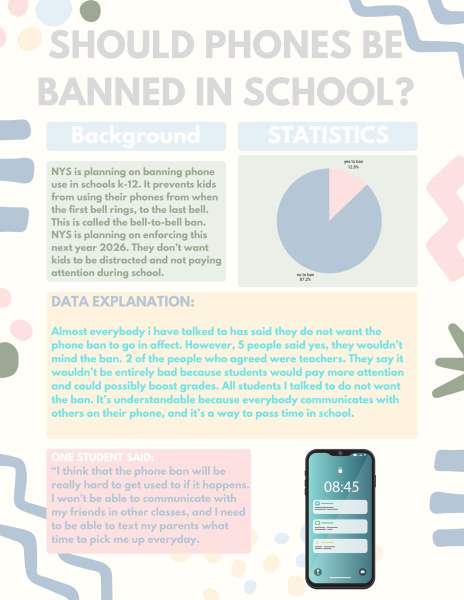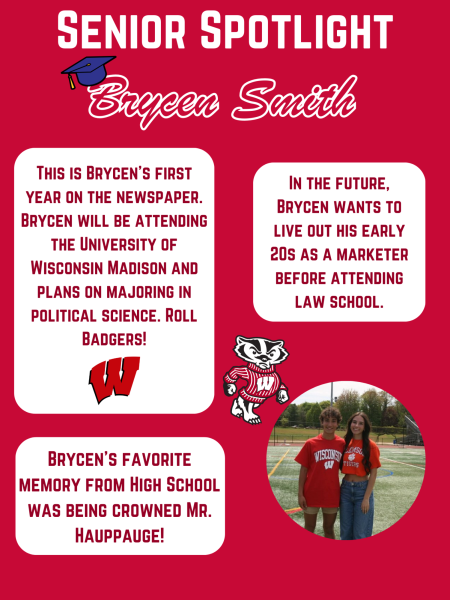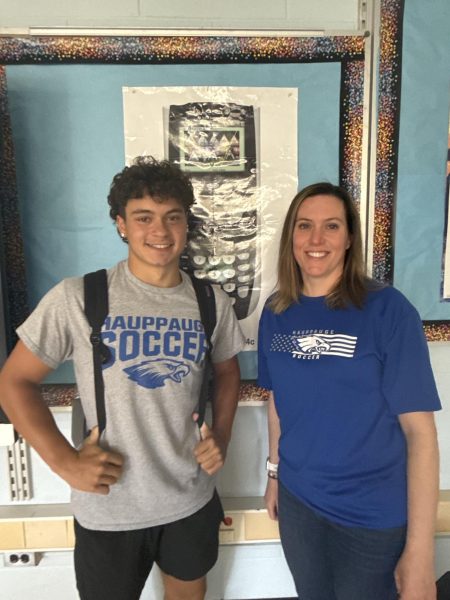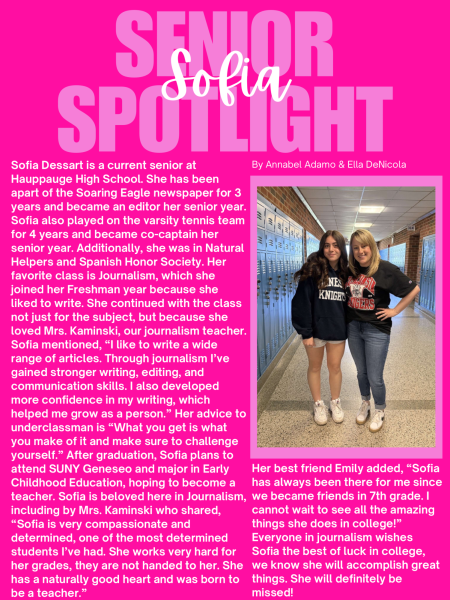A Message from the GSA Club
During a recent high school faculty meeting, Gender-Sexuality Alliance President, Isabella Calvao and Vice President, Andre Graca, gave a presentation to the staff about making LGBTQ students feel more welcome and included in the classroom. In order to make this school as safe and welcoming an environment as possible, we need the help of students as well as staff! Here are some ways you can help your peers feel safe in school.
First, knowing terminology is important for any ally. When you know the correct words to use surrounding the LGBTQ community, it is easier to understand your fellow LGBTQ students. Here are some words which are useful to know in order to have productive conversations about LGBTQ people:
LGBTQ – An acronym standing for lesbian, gay, bisexual, transgender, and queer.
- Lesbian – A woman who is attracted to women.
- Gay – A man who is attracted to men. Also can be used to describe the whole LGB community as an umbrella term.
- Bisexual – A person who is attracted to both their own gender and other genders.
- Transgender – Describing a person who is transitioning to a gender different from the one they were designated at birth. Terms like “transsexual” and “transvestite” are outdated; transgender would be the more appropriate term.
- Queer – Although previously used as a slur, it has been reclaimed by much of the community and is used as a general term for LGBT people. Identities such as “genderqueer” arise from this word.
Pronouns – These are the words that take the place of a person’s name in sentences. She/her, he/him, and they/them are some examples of pronouns. Some people may go by multiple – for example, she/they or he/they. This means that you should use the two interchangeably in conversations.
Cisgender – Describing a person who identifies with their gender assigned at birth.
Transgender boy/man – A person who was assigned female at birth and is now transitioning to male.
Transgender girl/woman – A person who was assigned male at birth and is now transitioning to female.
Nonbinary – A person who was assigned either male or female at birth, yet does not identify with either label. A nonbinary person does not identify with the binary version of gender, which would be girl and boy.
Deadname – A transgender person’s name assigned to them at birth that they do not use anymore.
AGAB – An acronym standing for “assigned gender at birth.”
AFAB – An acronym standing for “assigned female at birth.” Use this instead of “born a girl” or “used to be a girl.”
AMAB – An acronym standing for “assigned male at birth.” Use this instead of “born a boy” or “used to be a boy.”
These terms are the generally accepted, non-offensive ways to talk about the LGBTQ community.
Next, here are some things you can apply to your day-to-day life in order to foster LGBTQ acceptance:
- Introduce yourself to classmates with your name and pronouns.
- Transgender people are oftentimes expected to state their pronouns. In order to normalize this, cisgender people can mention their pronouns when introducing themself and add their pronouns to their social media accounts.
- Ask your peers what their preferred pronouns are.
- Instead of assuming what pronouns other people go by, you can ask in a friendly manner to eliminate any misunderstandings.
- Avoid strictly gendered terms.
- Instead of saying “guys and girls” or similarly gendered sayings, try to introduce gender neutral terms into your vocabulary!
- Friends, comrades, mates, gang, homies, or y’all are all gender-neutral phrases!
- Instead of saying “guys and girls” or similarly gendered sayings, try to introduce gender neutral terms into your vocabulary!
- Correct peers if they are using the incorrect pronouns for someone else.
- This also applies to deadnames.
- Do not out others without consent!
- “Outing” is the term for telling people that somebody is LGBTQ without that person’s consent. This can put them in an uncomfortable position, so be sure to ask someone before telling others about their gender or sexuality.
- Remove slurs from your vocabulary.
- Slurs are words with histories of oppression and hate in them. Do not use these words in conversations as they are extremely offensive.
Last, being informed of the troubles that face LGBTQ people can help you better understand why you should make these simple changes in order to make people in your community feel accepted. Websites like glaad.org, thetrevorproject.org, and hrc.org contain many facts about the community. For example, only 26% of LGBTQ students report feeling safe at all times in their classrooms (hrc.org) and more than 1.8 million LGBTQ youth ages 13-24 in the U.S. are estimated to have seriously considered suicide in the past year (thetrevorproject.org). These statistics show why it is so important to extend compassion to those who are LGBTQ.
Thank you so much for reading what the Gender-Sexuality Alliance has to say. We hope that through this article we can help foster acceptance and, of course, alliance with our LGBTQ community at Hauppauge. For any questions, feel free to reach out to a GSA member, or join us Fridays after school in room 358.


